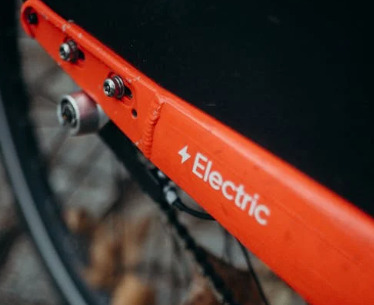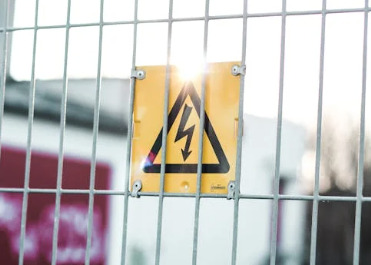Brings ideas to life through the power of words. Whether it's writing engaging blog posts, informative articles, or captivating social media content, I know how to connect with audiences and spark interest.
Don't wanna be here? Send us removal request.
Text
Maximizing Small Spaces: Tips for Apartment Living in Abu Dhabi

Living in an apartment in Abu Dhabi offers a unique blend of urban convenience and vibrant city life. However, navigating the challenges of limited space can sometimes be daunting. Fear not! With the right approach and some clever design tricks, you can transform your compact apartment into a stylish and functional oasis. In this blog post, we'll explore expert tips for maximizing small spaces in Abu Dhabi apartments, with valuable insights from a leading interior design firm in the city.
1. Embrace Smart Storage Solutions
In small apartments, every inch counts. Invest in furniture that doubles as storage, such as ottomans with hidden compartments or bed frames with built-in drawers. Utilize vertical space by installing shelves or wall-mounted organizers to keep clutter at bay without sacrificing precious floor space.
2. Opt for Multifunctional Furniture
Choose furniture pieces that serve multiple purposes. A sofa bed can provide seating during the day and a comfortable sleeping space for guests at night. A dining table with collapsible leaves can be expanded when needed and folded away when not in use, freeing up valuable space in the living area.
3. Create Zones with Furniture Placement
Strategically placing furniture can help delineate different areas within your apartment. Use rugs to define the living room area, and position furniture to create distinct zones for dining, lounging, and working. This not only maximizes space but also gives the illusion of a larger, more organized living area.
4. Let There Be Light
Proper lighting can work wonders in making small spaces feel more open and inviting. Maximize natural light by keeping window treatments minimal and opting for sheer curtains or blinds. Supplement natural light with strategically placed lamps or wall sconces to brighten up dark corners and create a cozy ambiance.
5. Keep Decor Simple and Cohesive
When it comes to decor, less is often more in small spaces. Choose a cohesive color palette and stick to it throughout your apartment to create a sense of continuity and harmony. Avoid cluttering surfaces with too many knick-knacks, and opt for statement pieces that add visual interest without overwhelming the space.
Living in a small apartment in Abu Dhabi doesn't mean you have to compromise on style or comfort. By embracing smart storage solutions, opting for multifunctional furniture, and seeking expert advice from an interior design firm in Abu Dhabi, you can create a space that's both beautiful and practical. With a little creativity and ingenuity, even the smallest of apartments can feel like a luxurious retreat in the heart of the city.
0 notes
Text
Electric Scooters: Sustainable Mobility Solutions for Urban Areas in Madhya Pradesh

In recent years, urban areas in Madhya Pradesh have faced numerous challenges related to
transportation, including traffic congestion, air pollution, and limited parking space. To address these issues and promote sustainable urban mobility, the adoption of electric scooters has emerged as a promising solution. With their eco-friendly nature, affordability, and convenience, electric scooters offer a sustainable alternative to traditional modes of transportation. In this comprehensive guide, we will explore the role of electric scooters in promoting sustainable mobility solutions for urban areas in Madhya Pradesh, focusing on cities like Bhopal and Indore. From the benefits of electric scooters to the development of electric vehicle infrastructure, let’s delve into how these vehicles are reshaping urban transportation in the state.
The Rise of Electric Scooters in Bhopal:
Bhopal, the capital city of Madhya Pradesh, is witnessing a surge in the adoption of electric scooters as residents seek cleaner and more efficient modes of transportation. With its growing population and expanding urban sprawl, Bhopal faces challenges such as traffic congestion and air pollution, making electric scooters an attractive option for commuters. Electric scooters offer several advantages over conventional vehicles, including zero tailpipe emissions, reduced noise pollution, and lower operating costs. As a result, many residents are turning to electric scooters as their preferred mode of transportation, contributing to the city’s efforts to combat air pollution and promote sustainable mobility.
The Benefits of Electric Scooters:
1. Eco-Friendly Transportation: One of the primary benefits of electric scooters is their eco-friendly nature. Unlike traditional gasoline-powered vehicles, electric scooters produce zero tailpipe emissions, helping to reduce air pollution and combat climate change. By switching to electric scooters, residents of Bhopal can contribute to the city’s efforts to improve air quality and create a more sustainable urban environment.
2. Cost-Effective Commuting: Electric scooters are also a cost-effective mode of transportation,
offering significant savings on fuel and maintenance costs compared to gasoline-powered
vehicles. With rising fuel prices and increasing maintenance expenses, electric scooters provide
an affordable alternative for commuters in Bhopal, allowing them to save money while reducing
their environmental footprint.
3. Convenient and Accessible: Electric scooters are highly convenient and accessible, particularly in urban areas like Bhopal. With their compact size and maneuverability, electric scooters are well- suited for navigating crowded streets and narrow alleyways, making them an ideal choice for urban commuters. Additionally, the availability of electric scooter rental services and charging infrastructure further enhances their accessibility, allowing residents to easily access electric scooters for their daily commute.
Developing Electric Vehicle Infrastructure:
To support the growing adoption of electric scooters and other electric vehicles, Madhya Pradesh is investing in the development of electric vehicle infrastructure, including charging stations and dedicated parking spaces. In Bhopal, efforts are underway to install charging stations at key locations throughout the city, such as shopping malls, office complexes, and residential areas. These charging stations will provide electric scooter users with convenient access to charging facilities, enabling them to recharge their vehicles quickly and efficiently.
In addition to charging infrastructure, Madhya Pradesh is also implementing policies to incentivize the adoption of electric vehicles, including tax incentives, subsidies, and rebates for electric scooter buyers. These incentives make electric scooters more affordable and attractive to consumers, encouraging more residents to make the switch to clean and sustainable transportation options.
The Role of Electric Scooters in Indore:
Indore, the largest city in Madhya Pradesh, is also experiencing a growing interest in electric scooters as residents seek to reduce their carbon footprint and embrace sustainable transportation solutions. With its rapidly growing population and expanding urban infrastructure, Indore faces similar challenges to Bhopal in terms of traffic congestion and air pollution. Electric scooters offer a viable solution to these challenges, providing residents with a clean, efficient, and affordable mode of transportation.
In Indore, electric scooters are being integrated into the city’s existing transportation network, with initiatives such as electric scooter rental services and electric scooter-sharing programs gaining popularity among residents. These services provide commuters with convenient access to electric scooters for short-distance travel, reducing the reliance on traditional gasoline-powered vehicles and promoting sustainable urban mobility.
Electric scooters are emerging as sustainable mobility solutions for urban areas in Madhya Pradesh, offering numerous benefits including eco-friendly transportation, cost-effective commuting, and convenient accessibility. Cities like Bhopal and Indore are witnessing a growing adoption of electric scooters as residents seek cleaner and more efficient modes of transportation. With the support of government policies and investments in electric vehicle infrastructure, electric scooters are poised to play a significant role in reshaping urban transportation in Madhya Pradesh, paving the way for a cleaner, greener, and more sustainable future.
0 notes
Text
Understanding Transformer Regulations and Compliance in Maharashtra

Transformers are critical components of Maharashtra’s infrastructure, powering industrial, commercial, and residential establishments across the state. However, to ensure their safe and efficient operation, transformers are subject to various regulations and compliance standards mandated by the Maharashtra government. In this blog, we will delve into the intricacies of transformer regulations and compliance in Maharashtra, demystifying the legal requirements and providing guidance on navigating the regulatory framework.
Maharashtra Transformer Regulatory Framework:
1. Overview of Regulatory Bodies:
The regulation of transformers in Maharashtra is overseen by various governmental bodies, including the Maharashtra State Electricity Regulatory Commission (MERC), Maharashtra State Electricity Distribution Company Limited (MSEDCL), and Maharashtra Electricity Regulatory Authority (MERA). These bodies are responsible for formulating policies, issuing guidelines, and enforcing regulations related to transformer installation, operation, and maintenance.
2. Legislative Framework:
The regulatory framework for transformers in Maharashtra is governed by a combination of state and national legislation, including the Maharashtra Electricity Act, 2003, Electricity Rules, 2005, Indian Electricity Rules, 1956, and Central Electricity Authority (CEA) regulations. These laws outline the legal requirements and compliance standards that transformer manufacturers, suppliers, installers, and users must adhere to ensure the safety, reliability, and efficiency of transformers.
Compliance Guidelines for Transformers in Maharashtra:
1. Installation and Commissioning:
The installation and commissioning of transformers in Maharashtra must comply with specific guidelines outlined by regulatory authorities. This includes obtaining necessary approvals from MSEDCL or local electricity distribution companies, ensuring proper site selection, adherence to safety protocols, and compliance with technical specifications. Additionally, certified electrical contractors or engineers must oversee the installation process to ensure compliance with regulatory requirements.
2. Safety Standards:
Transformer installations in Maharashtra must adhere to stringent safety standards to prevent
accidents, electrical hazards, and environmental risks. Compliance with safety standards such as the Indian Electricity Rules, 1956, and the National Electrical Code (NEC) is essential to ensure the safety of personnel, equipment, and surrounding areas. This includes proper grounding, insulation, protection against overcurrents, and compliance with fire safety regulations.
3. Environmental Compliance:
Transformers in Maharashtra must comply with environmental regulations aimed at minimizing their impact on the environment and public health. This includes proper handling and disposal of transformer oil containing polychlorinated biphenyls (PCBs), compliance with pollution control norms, and adherence to guidelines for noise and vibration levels. Additionally, transformer installations near environmentally sensitive areas or protected habitats require additional permits and environmental impact assessments.
4. Testing and Certification:
Transformers installed in Maharashtra must undergo rigorous testing and certification processes to ensure compliance with regulatory standards and performance requirements. This includes type testing, routine testing, and acceptance testing conducted by accredited testing laboratories or agencies. Certificates of compliance and test reports must be obtained from authorized agencies and submitted to regulatory authorities as part of the approval process.
Navigating Transformer Compliance in Maharashtra:
1. Awareness and Education:
Understanding the regulatory requirements and compliance standards for transformers in Maharashtra is crucial for all stakeholders involved in their procurement, installation, operation, and maintenance. Businesses, electrical contractors, engineers, and facility managers should stay updated on the latest regulations, guidelines, and best practices through training programs, workshops, and industry publications.
2. Engagement with Regulatory Authorities:
Maintaining open communication and collaboration with regulatory authorities is essential for ensuring compliance with transformer regulations in Maharashtra. Businesses should engage proactively with MERC, MSEDCL, and other relevant agencies to seek clarifications, obtain approvals, and address compliance issues effectively. This includes seeking guidance on specific regulatory requirements, submitting compliance reports, and participating in regulatory hearings or consultations.
Understanding Legal Requirements for Transformers in Maharashtra:
1. Licensing and Permits:
Businesses intending to install, operate, or maintain transformers in Maharashtra may be required to obtain various licenses and permits from regulatory authorities. This includes electrical contractor licenses, installation permits, operation licenses, and environmental clearances. Failure to obtain the necessary licenses and permits can result in legal liabilities, penalties, and disruptions to operations.
2. Documentation and Record-Keeping:
Maintaining accurate documentation and records is essential for demonstrating compliance with
transformer regulations in Maharashtra. Businesses should maintain records of transformer
specifications, test reports, installation certificates, maintenance logs, and compliance documentation.
This documentation serves as evidence of regulatory compliance and may be required for audits, inspections, or regulatory inquiries. Compliance with transformer regulations is paramount to ensuring the safety, reliability, and efficiency of electrical infrastructure in Maharashtra. By understanding the regulatory framework, adhering to compliance guidelines, and engaging with regulatory authorities, businesses can navigate the complexities of transformer compliance effectively. Compliance with legal requirements not only mitigates risks and liabilities but also contributes to the sustainable development and resilience of Maharashtra’s electrical infrastructure. As Maharashtra continues to evolve and grow, compliance with transformer regulations will remain a cornerstone of responsible infrastructure management and regulatory governance.
1 note
·
View note